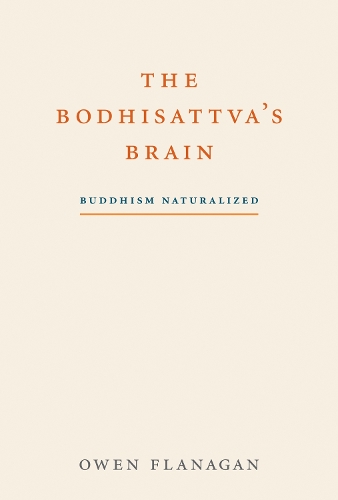
The Bodhisattva's Brain: Buddhism Naturalized
(Paperback)
Publishing Details
The Bodhisattva's Brain: Buddhism Naturalized
By (Author) Owen Flanagan
MIT Press Ltd
Bradford Books
13th September 2013
13th September 2013
United States
Classifications
Professional and Scholarly
Non Fiction
Buddhism
181.043
Physical Properties
Paperback
280
Width 152mm, Height 229mm, Spine 14mm
363g
Description
This fascinating introduction to the intersection between religion, neuroscience, and moral philosophy asks- Can there be a Buddhism without karma, nirvana, and reincarnation that is compatible with the rest of knowledge If we are material beings living in a material world-and all the scientific evidence suggests that we are-then we must find existential meaning, if there is such a thing, in this physical world. We must cast our lot with the natural rather than the supernatural. Many Westerners with spiritual (but not religious) inclinations are attracted to Buddhism-almost as a kind of moral-mental hygiene. But, as Owen Flanagan points out in The Bodhisattva's Brain, Buddhism is hardly naturalistic. In The Bodhisattva's Brain, Flanagan argues that it is possible to discover in Buddhism a rich, empirically responsible philosophy that could point us to one path of human flourishing. Some claim that neuroscience is in the process of validating Buddhism empirically, but Flanagan'' naturalized Buddhism does not reduce itself to a brain scan showing happiness patterns. "Buddhism naturalized," as Flanagan constructs it, offers instead a fully naturalistic and comprehensive philosophy, compatible with the rest of knowledge-a way of conceiving of the human predicament, of thinking about meaning for finite material beings living in a material world.
Reviews
...if you are interested in current debates at the interface between religion, science and moral philosophy, there is much in this book that will engage you.
-- Rupert Gethin * Times Higher Education *Brilliant...Flanagan brings much needed clarity, insight and sophistication to the debate.
-- Julian Baggini * The Observer *I can't recommend this book enough. It's thoughtful in the best sense of the word. It you're a Buddhist (or someone leaning towards Buddhism) who likes to wrestle with philosophical issues, it will help you to think things through more clearly. If you are a Buddhist who is inclined toward Naturalism, it's always nice to find another ally. Best of all, it's fun to read.
-- Seth Segall * The Existential Buddhist *It is true that science has yet to produce good explanations of consciousness, value and free will. The suggestion brought to the fore by Flanaganthat Buddhism may be a source of insight in these areasis a welcome and tantalizing one.
* Nature *[T]he most important question may be whether the cultivation of Buddhist virtues will lead to the sort of happiness that comes with the sense that...life has meaning and value...Flanagan has many insightful things to say about this claim.
* The Philosopher's Magazine *Owen Flanagan writes with warmth, wisdom and wit. The Bodhisattva's Brain is a milestone of cosmopolitan thought and should be read widely by philosophers, cognitive scientists, theologians and anyone concerned with human flourishing and the meaning of life.
* Times Literary Supplement *A trailblazing work which opens up new horizons for exciting comparative work in philosophy and psychology.
* Mind *Scholars and cognoscenti of Buddhism may find this a somewhat frustrating book; but all interested in Buddhism may read it and find discussions of interest and value...Above all, Flanagan has put on the table the issue of what a naturalized Buddhism is. If Buddhism is to move into the West significantly, I think it will have to go this way. The book, then, opens the way for many important future debates.
* Philosophical Quarterly *Author Bio
Owen Flanagan is James B. Duke Professor of Philosophy at Duke University. He is the author of Consciousness Reconsidered and The Really Hard Problem- Meaning in a Material World, both published by the MIT Press, and other books.
